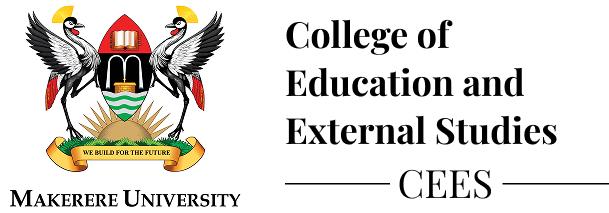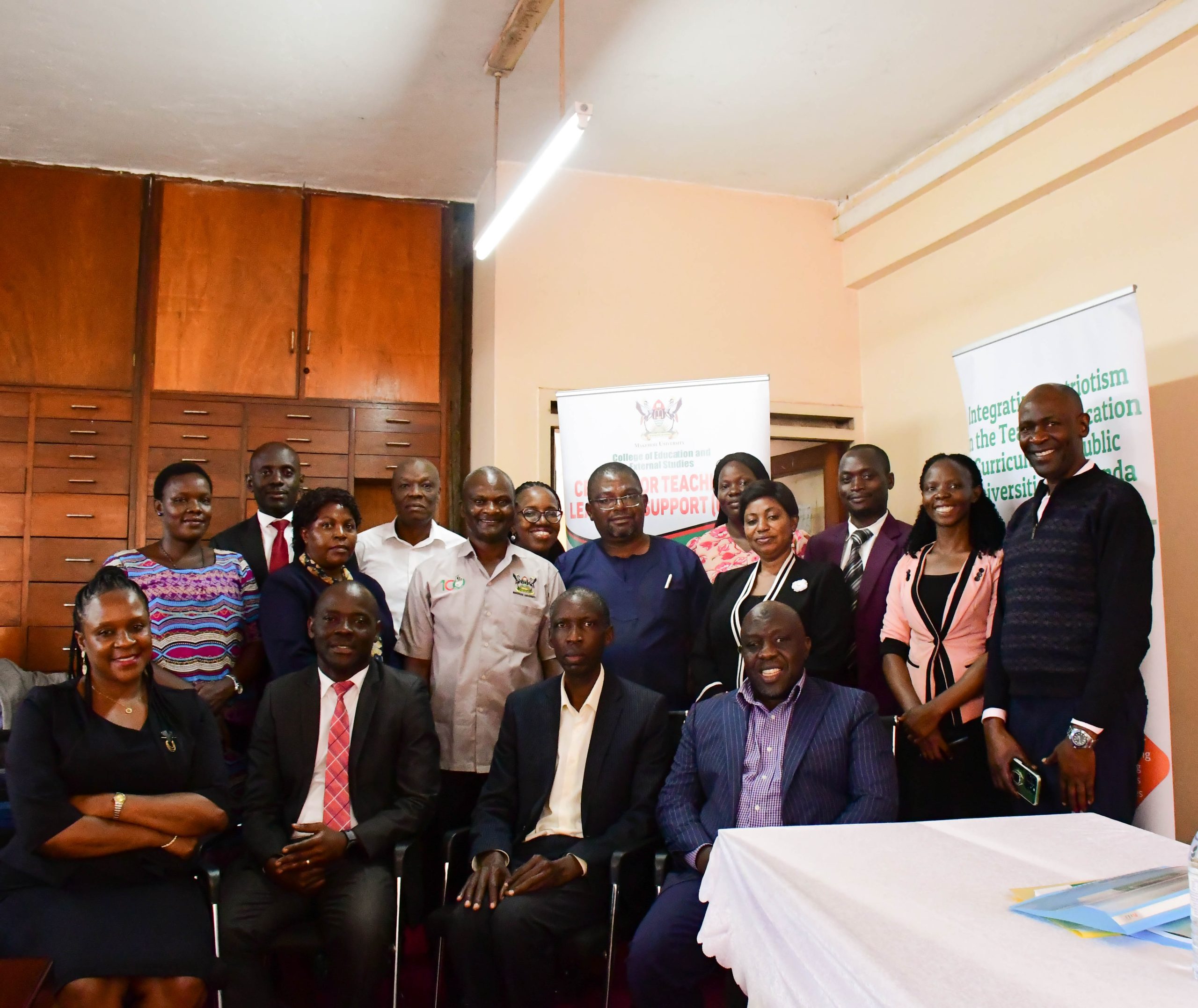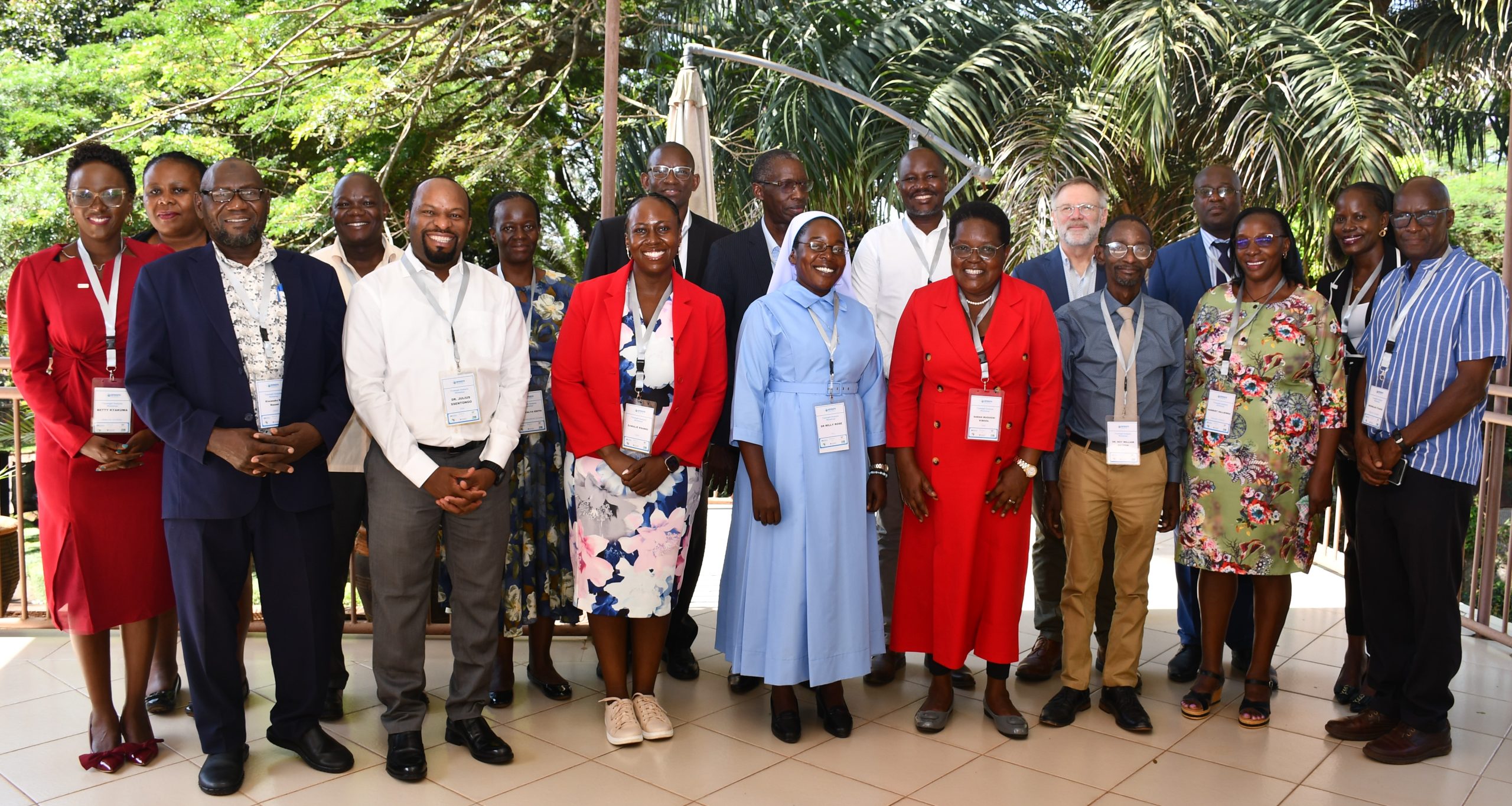October 16, 2025: “Salaries alone rarely make people wealthy. Financial growth comes from savings, investments, entrepreneurship and innovation. Those who invest collectively in ventures, saving clubs or small businesses, pool resources for projects, and often live comfortably and educate their children with ease,” said Mr. Sulaiman Kiggundu, the Director-Budget Office at the Parliament of Uganda, during a guest lecture at Makerere University.
Stressing that growing old is not an option, Mr. Kiggundu called upon Ugandans to build their income portfolio through savings and investments so as to enjoy retirement.
Themed, Building Wealth and Securing the Future: Smart Investment and Retirement Strategies for Every Stage of Life, the Lecture organized by the Centre for Teaching and Learning Support at the College of Education and External Studies, attracted both physical and online participants.
Held on 16th October 2025, the lecture presented to both staff and students, practical pathways to financial independence and retirement planning. The lecture provided a platform to gain essential knowledge on saving, investing wisely, and preparing for a secure financial future.
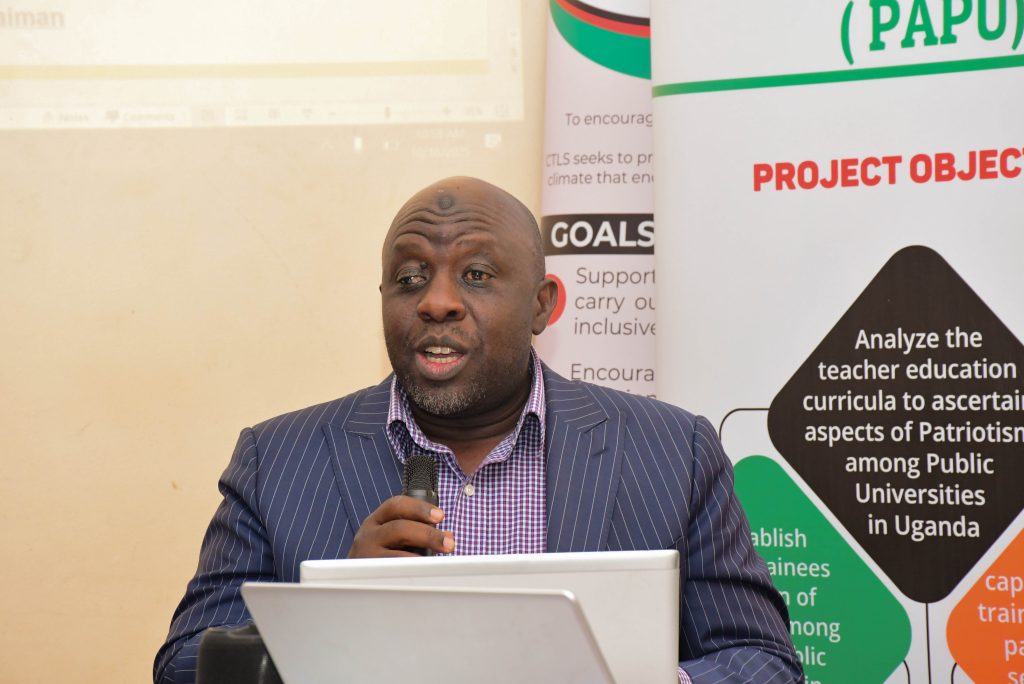
The Guest Presenter, Mr. Kiggundu delivered an inspiring keynote presentation, blending personal experience with tested and proven financial undertakings/ventures. Mr. Kiggundu is a Ugandan who has accumulated wealth through savings and investments. He is also an investment champion.
During the lecture, Mr. Kiggundu explained that wealth is broader than money-it is independence and choice. He highlighted four key drivers of wealth: Education and Skills, Savings and Investments, Entrepreneurship and Innovation; Discipline and Patience.
Reinforcing a vital message that true wealth is not merely earned, Mr. Kiggundu stressed that wealth is intentionally built through discipline, informed choices, and consistent planning.
“Uganda’s future belongs to those who plan wisely and invest patiently. Your future is determined by what you do today, not tomorrow,” he stated.
With reference to Kenya, Mr. Kiggundu revealed that every Kenyan belongs to a SACCO. However, it is a different scenario in Uganda. “Most Ugandans have a poor saving culture. They have a habit of spending all their income. This is the source of all problems. You must change your attitude,” he advised.
He challenged the participants to listen to the inner voice, and respond to the following questions: Are you insured? Is your house insured? Do you belong to an investment club? Do you have an automated saving system or a side hustle? Is there an idle piece of land that you could develop?
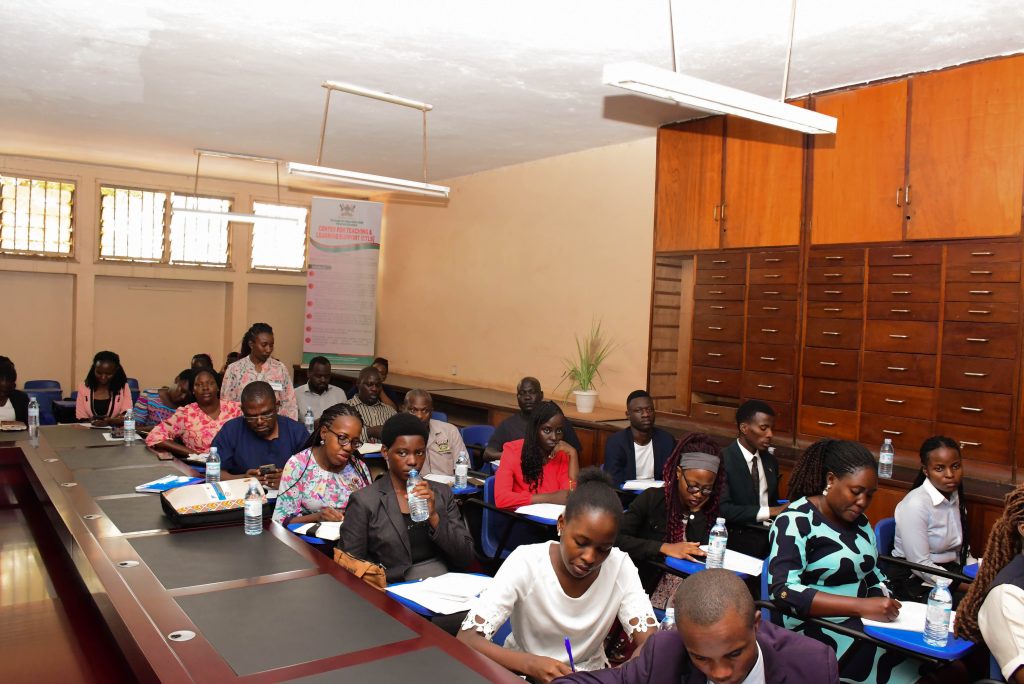
He urged Makerere University staff to join investment clubs, trusted saving groups, track and monitor their savings in mandatory retirement schemes, acquire investment advisors, and to avoid social obligations that overstretch their income.
He specified some of the common money traps to avoid, including: borrowing to impress, ignoring insurance, mixing family and business money, joining get rich schemes, and not having an emergency fund.
Articulating the importance of investment advisors, he noted that professors and professionals, always engage lawyers and consultants, but forget to hire investment experts, who would guide them on the most viable investments or businesses. Mr. Kiggundu called upon staff and students to emulate the people in Europe, and /or football players, who earn money, but have professional investment advisors.
Mr. Kiggundu highlighted some of the investment vehicles in Uganda. These include: Bank savings and fixed deposits (low risk, low medium returns), treasury bills and bonds (via Bank of Uganda and bond markets), Uganda Securities Exchange, SACCOs Village savings and Loan Associations and microfinance institutions, Real Estate (to let, plots for development) and agribusiness investment, Pension and retirement schemes (NSSF and private retirement plan), Unit trusts, investment funds, and fintech platforms (select regulator providers), digital skills and side hustles.
Reflecting on his career and life journey from a teaching assistant to his current role, Mr. Kiggundu emphasized that financial security is cultivated through disciplined saving, strategic investment, and thoughtful planning.
Mr. Kiggundu shared invaluable lessons on savings, investment, and retirement planning, stressing that financial literacy is a lifelong journey. He encouraged participants to adopt a mindset where income minus expenses equals savings and investments—allowing money to work for them. He cautioned against living beyond one’s means, highlighting that overspending erodes financial stability regardless of income. Budgeting, automated savings, and prioritizing long-term goals, he noted, are key to building wealth.
“Over the years, I have interacted with various professionals, including public servants and legislators. Some have transitioned into retirement successfully; others have struggled. The difference often lies in one’s mindset about money. Traditionally, people believe that income equals existence—you earn, spend, and survive. But the smarter mindset is that income minus expenses equals savings and investment. The goal is not to work for money alone, but to let money work for you.”
Highlighting the role of entrepreneurship, Mr. Kiggundu shared examples from his personal experiences with investment groups and collective ventures such as tree planting, which generated substantial passive income. He emphasized that while salaries provide stability, wealth grows through diversified investments and long-term projects, strategic land purchases, and real estate.
He offered practical advice to participants including starting small with savings, building emergency funds, joining investment clubs or SACCOs, and seeking professional guidance before committing to investments. He highlighted the need for insurance, writing wills, and separating personal/family from business finances as crucial safeguards.
To the young professionals, Mr. Kiggundu advised them to develop skills and take on side hustles, emphasizing independence and smart resource management. For mid-career individuals, he recommended consolidating finances and preparing for retirement while maintaining disciplined lifestyles-free of unnecessary debt. He underscored patience, consistency, and informed decision-making as pillars of sustainable wealth creation.
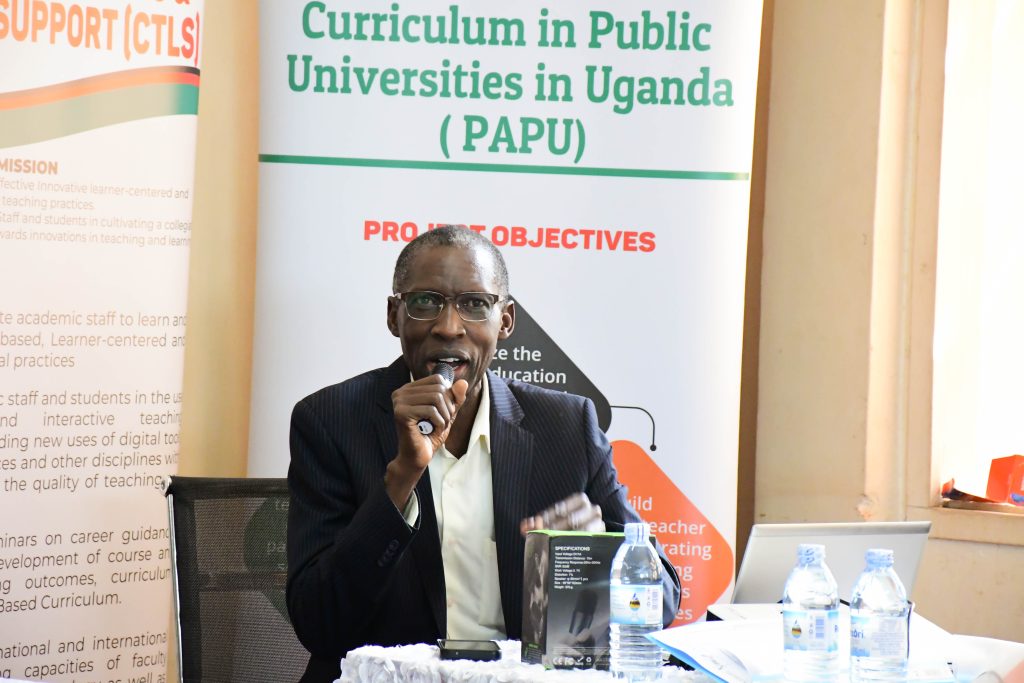
Some of the leaders who graced the lecture with their personal presence include: The Principal of the CEES-Professor Anthony Muwagga Mugagga, the Dean of the School of Education-Associate Professor Mathias Mulumba Bwanika, and the Director of the Centre for Teaching and Learning Support-Dr. Dorothy Sebbowa.
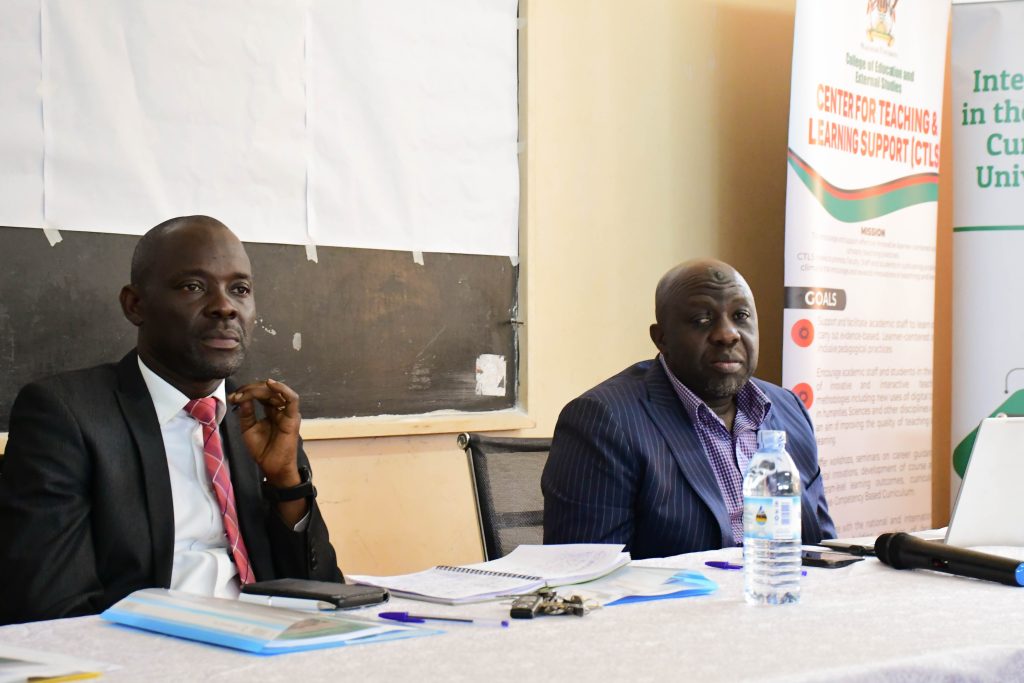
Prof. Anthony Mugagga, CEES Principal shared a compelling story of how small, but consistent investments can yield life-changing results. He revealed that while at the university, as a student in the 1980s, he engaged in modest business ventures such as buying and selling reams of paper. These humble beginnings allowed him to purchase a plot of land in Namugongo for UGX 350,000 in 1990, now valued at over UGX 1.5 billion. “It was small money then, but it taught me the power of saving and investing early,” he revealed.
Prof. Mugagga reflected on financial disparities, contrasting the struggles of some highly paid professionals with the resilience of lower-income earners. “I have seen professors who worked with the World Bank and IMF returning home with dollars and pounds, only to struggle because they never invested wisely,” he observed. “Meanwhile, a primary school teacher earning 215,000/= manages to survive. The difference lies in discipline and planning.”
He candidly shared lessons from ventures that proved challenging, such as investing in the transport sector- owning taxis and boda-bodas, cautioning younger generations to make informed choices. “At my age, I have learned that wealth is built on patience, wisdom, and good advice. Younger people still have time to correct where we went wrong.”
Associate Professor Mathias Mulumba, Dean of the School of Education, underscored the universal relevance of the discussion. He emphasized that the session was valuable not only for those nearing retirement, but also for newly appointed staff, and students yet to begin their professional journeys.
He likened salaried employment to standing on a stage: a time of recognition, admiration, and responsibility, “but no one remains on that stage forever. What matters is what we have prepared for that moment.” He urged participants to take actionable steps from the guest lecture.
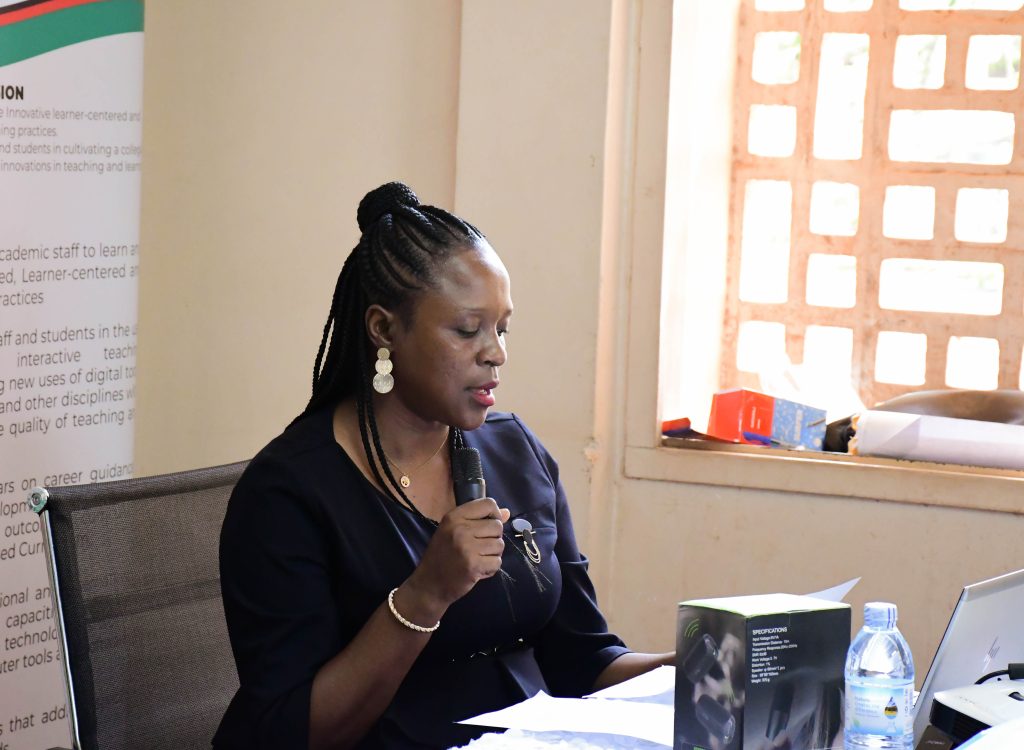
Dr. Dorothy Sebbowa, Director of CTLS and Senior Lecturer at CEES, acknowledged Dr. Charles Kyasanku and Dr. Badru Musisi for moderating the session.
Dr. Sebbowa stated that developing sound financial habits is crucial at every stage in life. She explained that the session aimed to empower participants with tools for long-term financial security.
“Understanding how to make informed financial choices and prepare for retirement at every stage of life empowers individuals and communities. Whether you’re starting your career, at mid-level, or approaching retirement, developing sound investment and financial planning habits is key to long-term stability and security.”
Dr. Sebbowa provided an overview of CTLS, describing it as an innovation hub dedicated to enhancing teaching and learning through learner-centered pedagogies and continuous professional development. The Centre promotes transformative teaching, entrepreneurship, communication skills, and soft skills development, aligned with Uganda’s national development goals, through partnerships both locally and internationally.
Dr. Sebbowa reaffirmed CTLS’s dedication to supporting educators, learners, and professionals with innovative and practical learning solutions. She commended the College leadership for their support and extended appreciation to participants for demonstrating commitment to continuous learning and responsible financial stewardship.
